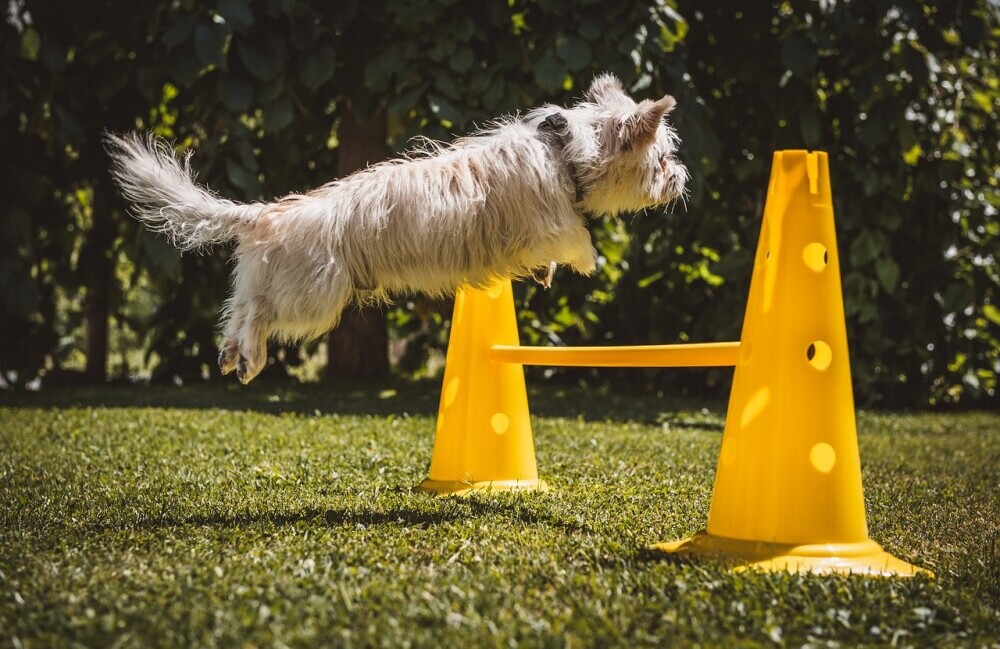New Year’s Resolutions For Your Pet
The New Year is fast approaching, and if you’re like many people, you do your best to come up with some New Year’s resolutions for the coming year. Normally your resolutions are geared towards a healthier, postive change.
When making your resolutions though, have you ever thought about crafting New Year’s resolutions for your pet? It’s a novel approach that can strengthen the bond between you and your furry, feathered, or scaly friend while also boosting their well-being. Making resolutions for your pet isn’t just about imposing new rules; it’s a commitment to enhance their quality of life and happiness, the same as yours.
Pets, much like us, thrive when they have routines and goals. Whether it’s embarking on a new exercise regime, trying out different nutrition plans, or focusing on regular vet visits, these resolutions can improve their health significantly. They offer structure and predictability, which can be reassuring for pets, especially those who get anxious easily.
The bond you share with your pet is profound, often becoming a cornerstone of emotional support. Including them in your resolutions acknowledges this special relationship, turning goals into shared experiences that can enrich the connection.
Shared resolutions aren’t merely about discipline; they can be fun and engaging, too. Think about setting a resolution to explore new trails together, taking a pet yoga class, or learning a new trick every month. It’s not just beneficial for their physical health, but it’s a fantastic way to keep their minds active as well.
Ultimately, New Year’s resolutions for your pet are about building a shared journey of health and happiness. When both of you participate in these resolutions, it sets a tone for mutual care and partnership that can last throughout the year.
Healthy Living: Diet and Exercise Goals for Your Pet
Crafting a balanced diet that meets your pet’s specific needs is a game changer for their health. Different pets have distinct dietary requirements, so it’s crucial to consult your vet about what’s best for your furry friend’s breed, age, and any health conditions. Consider incorporating high-quality ingredients and perhaps exploring options like home-cooked meals or specialized pet foods if it aligns with your vet’s advice.
Regular vet check-ups are key in maintaining your pet’s wellbeing and catching any health issues early. Making this part of your resolution ensures you’re keeping a close watch on their health status. Vet visits aren’t just about treating illness but are also preventive measures that can save your pet from discomfort later on.
Exercise is just as vital for pets as it is for us humans. Tailoring an exercise routine that fits your pet’s lifestyle, whether they’re super active or more laid-back, can help keep them fit and content. Dogs might appreciate a new walking path or an agility course, while cats could enjoy interactive toys that mimic hunting. Birds and small animals need stimulation too, so consider activities that encourage movement.
Don’t underestimate the power of playtime. Mental stimulation through games, training sessions, or even puzzles can provide your pet with necessary cognitive challenges. It’s an excellent way to prevent boredom while strengthening your bond.
Keeping an eye on your pet’s weight is part of maintaining their health regime. Obesity in pets can lead to a slew of health problems, from joint pain to diabetes. Through your resolutions, create a plan to regularly monitor their weight and adjust their diet or exercise accordingly. Weight management is often about more frequent short activities rather than snacking on treats.
Providing Mental Stimulation and Training
Keeping your pet’s mind sharp is just as important as taking care of their body. Mental stimulation can lead to a happier, more well-balanced pet, reducing behaviors like chewing or excessive barking in dogs or destructive scratching in cats. Engaging them in mentally enriching activities should be a cornerstone of your pet resolutions.
Training is a fantastic way to challenge your pet mentally while reinforcing good behavior and manners. Whether it’s teaching new tricks, reinforcing basic commands, or engaging in advanced training, your pet benefits from the mental engagement and the time spent bonding with you. Use positive reinforcement techniques – they’re effective and encourage a trusting relationship.
Puzzle toys and interactive games are great for providing mental challenges. Toys that dispense treats, or require problem-solving to retrieve a toy or reward, can keep pets engaged for hours. These activities simulate natural behaviors like hunting and foraging, making them especially beneficial.
Playing hide and seek with your pet or setting up obstacle courses can be both fun and intellectually stimulating. It’s all about creating new experiences that force them to think outside the box. This kind of play stimulates their mind and uses up some of that pent-up energy.
Remember, even small changes like varying your walking route or introducing new sights and sounds to your pet’s environment can offer mental stimulation. Keep it fresh – your pet will appreciate the variety.
Keeping the Momentum: Maintaining Resolutions All Year Long
Sticking to new routines can be a challenge, especially as the initial excitement fades. However, maintaining these resolutions consistently benefits your pet’s overall health and happiness. Making small, manageable changes rather than sweeping overhauls is often the key to sustainability.
Developing a schedule helps keep you on track. Whether it’s setting reminders for exercise sessions, vet appointments, or regular training, having a routine makes managing resolutions easier. Scheduling brings predictability, something pets thrive on.
Evaluate progress periodically. Take time to review how well you’re sticking to these changes and their impact on your pet. Noticing improvements in your pet’s behavior, health, or mood can be encouraging. On the flip side, if something isn’t working, you can adjust rather than abandon your plan.
Involving family or friends in your pet’s resolutions can bring in extra motivation and support. They might join on walks or help with training, making the process more enjoyable and less of a solitary task.
Remember, it’s okay to adjust your goals throughout the year. Life changes, and so do your pet’s needs. Flexibility doesn’t mean failure—it means you’re attentive and responsive to what’s best for your companion.
Ultimately, resolutions are about creating a healthier, happier life for you and your pet. By staying committed and adaptable, you can ensure these changes become a lasting part of your routine.




2 comments